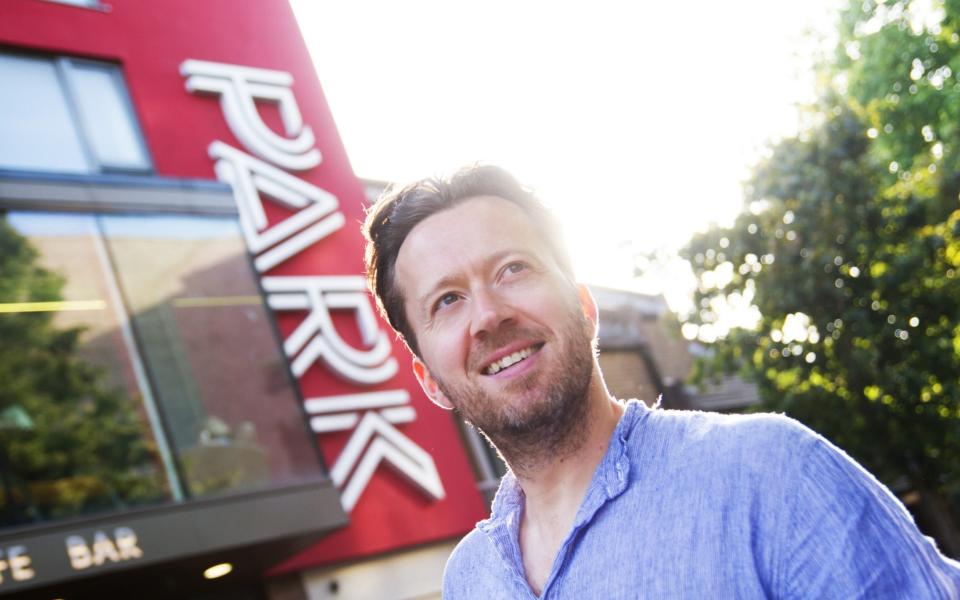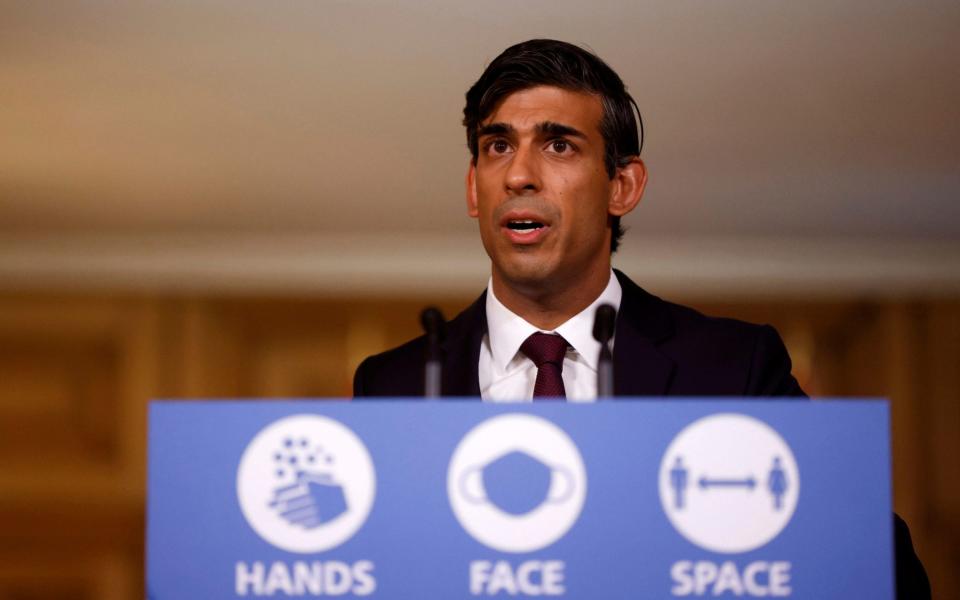Theatre in crisis: ‘British culture is world-beating – why leave us behind?’

The Government’s new jobs plan has been met with despair – and fury – from many in the arts world. “Theatre has been viable for thousands of years,” points out leading producer Sonia Friedman. “Yesterday’s announcement from the Chancellor that our industry is not viable (whatever that means) represents an almighty blow and is, frankly, a huge insult to the theatre industry, one of this country’s most financially successful and emotionally essential sectors.
“If the Government feels confident it can discard theatre and the entire freelance workforce from its immediate, urgent concerns, then it has quite brazenly announced its willingness to discard the mental health of our nation.”
Friedman adds that arts workers don’t want to sit idle – far from it. “Our creatives, actors, musicians and technical teams were ready and willing to work under challenging and changing circumstances. Why does this Government refuse to see what we are worth and what we offer the country? Less than three weeks ago, the Government encouraged theatres back to business as usual as part of Operation Sleeping Beauty. Today, they have left the entire industry high and dry.”
The Chancellor’s implication that arts businesses are unviable is “outrageous,” Friedman adds – especially as the Government is relying on the sector to drive economic recovery by drawing people back to town and city centres. “As an example of our ‘viability’, in tourism surveys, ‘Theatre’ is ranked second only to ‘Heritage’ as the reason quoted for international tourists choosing to visit the UK!”
In addition, she observes, “theatre drives inward investment, generates intellectual property that is licensed all over the world, and, as noted by the Chancellor, plays a major role in Britain’s soft power. Theatre has proved itself a British success story domestically and internationally, generating £6 for every £1 of funding. The West End as an ecosystem brings £5 billion to London’s economy alone.
“We’re not just viable, we’re one of the most valuable, innovative and essential industries on the planet, but without sector specific support to cover our temporary crisis, we are being abandoned by a Government content to throw in the towel. It’s entirely illogical: its own £1.57 billion package will end up paying for the very redundancies it is seeking to avoid.”
At the very least, believes Friedman, the Government needs to “provide proper support to our workforce now, publish clear guidance on the public health conditions and safety measures required for us to resume performances, and underwrite the cost of insurance. In return, they can ensure the return of our sector – worth £7 billion to the UK economy – is at the heart of the nation’s recovery from this crisis.”

Her fellow arts leaders also take issue with the notion of a ‘viable business’, including Jez Bond, founder and artistic director of London’s Park Theatre. “Let’s talk about the values of a charity, which is what our theatre is. A business’s objective is through delivery of services or products to make money – a charity’s objective is not that. If it was, we’d be lost. Our objective is about providing a place for people to come, share ideas, be excited, challenged, be a training ground, education for young people, community outreach like working with older people with dementia or those with Down’s Syndrome.”
However, Bond is adamant that it’s not “a financial drain on the Government in any way”, pointing out that theatre is normally a thriving sector – only in difficulty now because the Government has forced doors to close, or venues to hold loss-making, socially-distanced performances without an end in sight.
The Park also does its own private fundraising, Bond points out. “We have never been in receipt of any core funding from the Arts Council, or local or national Government. Plus we help people stay happy, educated, connected – it’s good for mental health – and they go on to work, pay taxes and put it back into the system. So we have value that’s not being recognised on this ‘business’ balance sheet. Music, drama – it enhances lives. The Government should also be grateful that we’ve filled the gaps left by their cuts – like we subsidise tickets for local schools.”
Bond was frustrated by the Chancellor’s dismissive comments, referring all queries about support for the arts to the already announced (though yet to be distributed) £1.57 billion rescue package. But that doesn’t make sense, says Bond. “The whole point of the bailout is that it’s based specifically on us being able to operate from April 1 next year. That’s in the guidelines for the Arts Council application, and it’s meant to bridge that gap so you can survive. But now we’re looking like maybe more like July instead – so of course we need further support.”
Bond is concerned not only about his own staff, but about the freelance arts workers who have once again been forgotten. “It breaks my heart that they’re still not being looked after – that this huge pool of talent could be lost forever. I feel very bad that nothing substantial has been done to help them.”
As for Sunak’s job support scheme, where employees work a third of their normal hours and the Government and employer top up the rest of their wages, that’s no help for arts employees who can’t work at all right now. “Do we give people random things to do and say that they’re working, even though the theatre is closed?” asks Bond. “Get our administration manager to pick up a brush and paint the venue? Decipher these guidelines and crowbar in somehow? There’s a lot of people who can’t do their job – can’t do strategic planning, or front of house. Until there’s a building alive with performances and the public, it’s very difficult. This plan really doesn’t acknowledge that.”

Equally, the Chancellor saying that tourism and hospitality are most affected by the pandemic, but separating those out from the arts – which is just as badly, if not more, affected, and also drives those two sectors – seems absurd. “Theatre is part of a much wider ecology,” explains Bond. “I’ve seen the desolation walking down the street here. Seven years ago, all these buildings had their shutters down. Since our theatre has been here, we’ve got thriving bars, cafes, restaurant, a little supermarket - and they’re all trying to hang onto the skin of their teeth with reduced service, asking me every day ‘When are you going to reopen?’ If you want to help those sectors, keep theatres alive.”
Equity’s general-secretary-elect Paul Fleming called the announcement “as underwhelming as it is terrifying. Only 40 per cent of our members have received any money to date from the SEISS – and how can 20 per cent of profit be anywhere near enough for people to survive on? Its extension is meaningless to so many Equity members. Even the most pragmatic and decent steps, like extending the suspension of the Minimum Income Floor from Universal Credit, have been overlooked.
“Driving our hard-working, tax-paying members out of their professions like this is not only unjust but economically illiterate. Without them, we risk the collapse of the £112 billion the creative industries contribute to the UK economy.”
In a statement, the Society of London Theatre (SOLT) also expressed dismay about Sunak’s plans. “The Chancellor‘s announcements today do little to help the theatre and performing arts sector where the majority of venues and productions remain closed due to Covid. Our previously viable and world-beating sector is facing decimation as with no income organisations cannot bring their staff back to work.
“Without targeted and vitally needed support for the workforce in this sector, we will see further job losses and redundancies. While the extension of the self employed scheme is welcome, with the amount offered reduced to 20 per cent thousands will face real financial peril.”

Responding to the notion of supporting viable businesses, SOLT’s Julian Bird adds: “UK theatre is normally a net contributor to tax, to economic prosperity, to exports, and of course we will be viable in the future, so distinctions between viable and not viable are not helpful. We need Government to recognise that the live entertainment sector is unique in getting back to business, that we are viable long term, and they need to work on a package of measures that help the sector like ours, including freelancers.”
As for the job schemes announced yesterday, Bird observes that “most arts venues haven’t had any income for six months, and with the potential for more months like it again, so a proportion of nothing is still nothing. It’s the same for the self-employed, in that the 20 per cent level doesn’t work - not many people could survive on that. Plus people are still left out altogether.”
Paul Miller, artistic director of the Orange Tree Theatre, had had a private tip from a Conservative MP that the arts would be disappointed. “The Treasury has an inbuilt anathema for sector-specific deals. It’s just institutionally incapable of having specific terms for specific sectors, even though it seems obvious that sectors like ours should be helped.
“They just think the rescue package will do the trick, even though some organisations felt they were ineligible to even apply for it. You had to prove that you were both viable and unviable as a business, so the comments now are puzzling.”
As for lobbying for further support, Miller thinks that it’s only next month, when the results of those applications for the rescue package are known, that “the mists will clear and we can see the pattern of distribution. I believe DCMS have held back a little of that money, as this first tranche is only £500 million, so I can only hope they have some in reserve.”
Miller is more optimistic than some of the announced job schemes might be useful to arts venues, as “there is part-time work that could be done here like fundraising campaigns, building maintenance, and Covid-secure activities like youth theatre. It also enables us to do more digital activity.”

Royal Court artistic director Vicky Featherstone assumes that “all of our jobs are fundamentally viable, because as soon as we’re allowed to make work again in theatre, we can employ everyone again.” She takes pride in keeping their literary department and education department going, since “all of our work with writers and young people has to continue”.
The venue is also hosting a Living Newspaper this November, inspired the Federal Theatre Project which employed artists and theatre workers surfacing from the Great Depression. Six editions of the living newspaper, led by writers, will support actors, designers, stage managers, technicians and choreographers. “We need everybody to deliver that project, so that definitely proves we’re viable!”
The key thing, says Featherstone, is maintaining engagement so that “we keep our audience interested and eager to come back again.” She does think that the Chancellor’s 30 per cent wages plan might be helpful, as it means “some people can come back to work, which we couldn’t do with furlough. It gives us a middle ground.”
However, she echoes concerns about the freelancers left out in the cold. “There’s about 270,000 freelancers who make the theatre industry what it is. But nobody has listened to what we’ve been saying. There’s nothing in these plans that’s different or that shows some responsibility or accountability for putting those people in this situation.”
As for the self-employment scheme, Featherstone points out the irony that many weren’t eligible because the Government encouraged them to do things like become a limited company or take dividends instead of salary. “But that’s a massive part of our economy, central not just to theatre but the whole country, which is being ignored. It’s a huge risk at any time to start working in the arts, so we have to support people who make that leap.”
New voices may well be lost, but also “someone like that really experienced designer who’s built up their skills over years on the job, and now they’re losing their livelihood. Without them, all that experience vanishes, and we won’t be able to come back as strongly.”
The focus on buildings is misguided, thinks Featherstone; you need to nurture all elements. “Otherwise we’ll just be empty buildings – heritage projects! Theatre is also about people: those who make it and the audiences who come. Venues are just the guardians. So we need to be allowed to support our freelancers.”

Featherstone also notes that the seeming lack of urgency is perhaps because “we’re in a crisis, but it’s a crisis of long-term planning. The real crisis will become clear in April if we don’t see intervention before then. With our creative optimism, we hoped we’d be back almost as normal in late spring, but that doesn’t feel as possible now. There is some real support in what the Government’s offered to the arts, but there’s a real bleakness around at the moment.”
Another worry is whether audiences and donors, who have been “loyal and supportive with our digital projects and helping us financially, will be less tolerant if this carries on, and we haven’t been able to produce new shows in return.”
As for the Government singling out hospitality, but not the arts, Featherstone states that “one of the reasons why the West End is an internationally respected destination, and so effective in hospitality terms, is that it has theatre at its core.” She notes that local cafes and restaurants, like those near where she lives in north London, “have felt really fuzzy, but city centres are empty. You realise of course that there’s this symbiosis between those centres and theatre.”
Featherstone has been catching up with the teams whose shows have been postponed, reassuring them that the Royal Court does still want to stage them, and she’s been struck by the difference in other countries. “One Italian director said theatre is happening in Milan, and a writer in Germany said the same. That’s because they’re being fundamentally supported by the Government, so they can afford measures like socially distanced shows.
“Our culture is truly world-beating, so why are we being left behind?”


